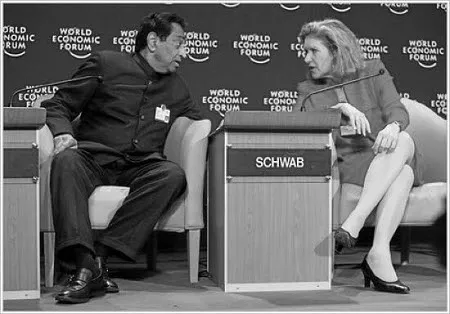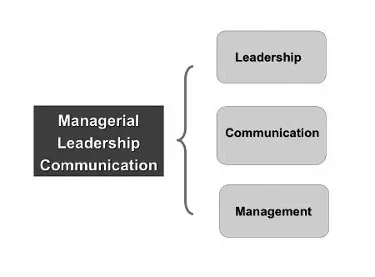![]()
Chapter 1
Building the Foundation of Managerial Leadership Communication
Studies repeatedly point to the impact communication skills have on the ability of managers and leaders to succeed or fail. “The ability to communicate effectively may be the number one management quality,” stated Chris M. Martin, Yahoo writer, who himself holds a BS in Business Administration and a JD.1 Managers and leaders need to use effective communication strategies as they build their teams and organizations to achieve organizational objectives. Too often, individuals move into management or leadership roles without an awareness of the need to improve their communication skills. These individuals may be subject matter experts whose technical skills allowed them to succeed as individuals, but who fail when placed in a management or leadership role because they lack the needed communication skills to foster collaboration. If communication is so important, just exactly what is it and does it differ for managers and leaders?
Photo courtesy flickr user World Economic Forum, CC 2.0
Definition and Types of Communication
Simply stated, communication is the glue or the life blood of an organization. Said another way, communication can be thought of as the gears that lubricate the machinery of the organization. It involves sending and receiving ideas, feelings, thoughts, opinions, and facts to other individuals by using written, oral, and interpersonal communication. A managerial leader uses communication to get things done with and through others. Effective communication takes place when a meeting of the minds occurs and all parties have a shared understanding.
Managerial Communication
Managerial communication is often defined as communication between managers and employees that allows them to complete the work of an organization. You will note that in this definition, the focus of managerial communication is within the organization.
Leadership Communication
The focus of leadership communication shifts more to interacting with external audiences to project the image and reputation of the organization. For leaders, internal communication still takes place, but it is more strategic in nature; the day-to-day communication activities are left to the managers. Leadership communication is focused on how to lead change and inspire a vision. As you can see, this type of communication is more complex and serves a broader audience. Sometimes you will also see it referred to as corporate communication.
A New Form of Communication: Managerial Leadership Communication
With social media, up to four generations of employees in the work place, and a global economy, organizations and leaders need a new form of communication. This new form, managerial leadership communication, brings together the skills and competencies of managerial and leadership communication under one umbrella.
Managerial leaders interact with employees and other organizational members while also communicating with vendors, suppliers, and other external audiences. When you, as a managerial leader, communicate with external audiences, you become the voice of the organization. On occasion, you might even be called upon to communicate with the press and other outside groups. The above diagram illustrates the three integral components of managerial leadership, with effective communication at the heart of it.
Why We Need Managerial Leadership Communication
Much research has stated what the author has found true in her own managerial leadership roles: a leader spends the majority of his or her day interacting with others. Today’s organizations do not hire “hands;” they employ whole individuals who bring intellectual capital. Employees of the 21st century want to think, make a difference, and make a meaningful contribution to the organization, not just receive a paycheck. They do not seek managers who command and control, but desire their managerial leaders to listen to them, respect their ideas, and include them in problem solving and decision making.
Any organization, for profit or not, comprises individuals who are specialists in certain functions. For an organization to meet its objectives, however, these subject matter experts must communicate internally and externally in ways that their audiences can understand. If employees cannot share information in a meaningful way or discuss ideas with each other, it truly doesn’t really matter how much they know. They will likely not be successful as they can’t communicate that expertise with others. While all employees need communication skills, these skills are vital for anyone who desires to move into a managerial leadership role.
Google recently conducted a comprehensive study that found that “what employees valued most were even-keeled bosses who made time for one-on-one meetings, who helped people puzzle through problems by asking questions, not dictating answers, and who took an interest in employees’ lives and careers.”2 Moreover, “technical expertise—the ability, say, to write computer code in one’s sleep—ranked dead last among Google’s “big eight” virtues—even though the study was specifically about managers at the tech company, not managers in general.3
Robert P. Gandossy, Hewitt Global Practice Leader for Leadership, Talent, and Employee Engagement, counsels organizational leaders to choose future managers for their communication skills as much as for their achievements. Front-line managers have the greatest influence over an employee’s engagement. Managers who are engaging communicators get more from their direct reports than managers whose strong skills lie elsewhere. Managers who can communicate serve as an insurance policy for keeping the best workers focused, engaged, and productive.4
While I was leading our Executive MBA program, I taught the communication and leadership development modules. Too often, a student would ask that the communication and leadership modules be replaced with more finance modules. Of course, as the leader of the Executive MBA program, my role was to listen to our students and I did. After listening to their requests, my team would implement changes where we could while also stressing to these students the importance of leadership and communication. In listening to my students, I knew the reality was that, conceptually, learning economics and finance was easier than learning how to communicate and lead others. Since learning how to communicate effectively and lead others requires making behavioral changes, most individuals find it difficult to do. My students were seeking to increase intellectual intelligence and not realizing that emotional intelligence is more valuable to a managerial leader.
When managerial leaders understand that their role is to guide, coach, influence, and persuade, they will choose to surround themselves with a team of subject matter experts. They know, as managerial leaders, that their focus has switched from their having to “know everything” to having a team that “knows everything.” Of course, the managerial leader should have a basic understanding of all subjects including economics, finance, and accounting so that he or she can make effective decisions. The input for those decisions, however, doesn’t come from the leader, but from his or her team.
I remember one particular e-mail I received after a student had graduated from our program. He said, “Dr. Roebuck, I find that my ‘people-skills’ seem to be holding me back from moving into more of a leadership role. I wondered if you could recommend a book I could read.” Of course, my first reaction was to laugh. But I chose to use my emotional intelligence and responded by suggesting a book that he could read. More importantly, I strongly recommended that he get a coach. The sad reality of this situation was that he had a safe environment while enrolled in the Executive MBA in which to practice and improve his leadership and communication skills, but he chose not to do so at that time, and then later realized that his lack of leadership and communication skills were holding him back. His thinking that reading a book would be enough to effect the changes he needed to make truly demonstrated his lack of understanding regarding managerial leadership. He was still trying to become a subject matter expert instead of a managerial leader.
Managerial leaders face many challenging situations, such as determining how to inspire a shared vision about goals and objectives, building trust within their units, listening with an open mind, giving feedback, and encouraging collaboration, to name a few. The focus for a managerial leader switches from his or her actually doing tasks to communicating with and through others on how to achieve those tasks. A managerial leader must exhibit effective communication. Sometimes having those communication skills can be a reason that an individual is given the opportunity to move into a managerial leadership position.
The Communication Skills of the Managerial Leader
You’ve probably heard the old story, or actually seen it occur in your organization. Someone who is excellent in his or her technical skills is promoted to manager. Then, once in that position, he or she demonstrates a lack of expertise in communication. Only with a willingness to be a life-long learner and a focus on enabling others can someone really fulfill the role of a managerial leader. As a managerial leader, you will need to master interpersonal, written, nonverbal, and oral communication skills.
Interpersonal Communication Skills
Many business professionals have difficulty with “soft skills,” which often are the “hard skills” because they require behavioral changes. However, they are the keys to your success as a managerial leader. Even more difficult for many of us, as illustrated by my story of the Executive MBA student who just wanted to read a book to improve, is accepting the reality that we have poor soft skills and must make an effort to improve.
To build interpersonal skills, you need to focus on building a number of component skills. The major interpersonal communication skills include
- giving and receiving FEEDBACK;
- mastering NONVERBAL communication;
- employing EMOTIONAL INTELLIGENCE;
- choosing the right type of LISTENING for the situation;
- using relevant QUESTIONS;
- understanding CONFLICT and the use of different strategies;
- using MENTORING, COACHING, and COUNSELING;
- building TRUST;
- creating TEAMS;
- conducting MEETINGS and INTERVIEWS.
No longer will you find it enough to know how to analyze a balance sheet or income statement. An effective managerial leader will take that balance sheet and use it to coach his or her employees, facilitate team productivity, and lead them toward performance improvement. This leadership cannot be done simply by reading the numbers and telling people the numbers need to change. Instead, you must enable others by communicating with them in ways that encourage them, motivate them, and reinforce their value.
Because of the importance and complexity of interpersonal communication skills and day-to-day communication situations, chapters 2 and 3 are devoted to these topics.
I am often surprised when some of my graduate students cannot distinguish between a complete sentence and a sentence fragment. My father, who taught English in high school for several years, says that he believes it is the biggest educational deficiency in college graduates and I would have to agree.
Written Communication Skills
Delta CEO Richard Anderson believes strongly in the ability to communicate and feels that it is so important that it ought to be a core capability in a business school curriculum. While Anderson stresses the importance of the ability to speak and write well, he believes that writing is not taught as well as it should be in the educational curriculum. He has stated that people really have to be able to handle the written and spoken word, and a strong foundation in grammar is essential to attaining the ability to do so. Anderson stated, “It’s not just enough to be able to do a nice PowerPoint presentation. You’ve got to have the ability to communicate.”5
As a managerial leader, you will be involved in composing e-mails, memos, policies, procedures, proposals, reports, blogs, instant messages, letters, and tweets. These forms of written communication function as the backbone of the organization’s internal and external communication. Given today’s world, in which technology enables communication around the globe, written communication has become even more important. However, former Securities and Exchange Commission chairman Arthur Levitt, who has long advocated “plain English” in business and government, says business writing is usually incomprehensible to readers. “It lacks color and nuance, and it’s not terribly interesting to read,” he says.6 So the challenge for you becomes writing for your audience while making sure your writing is clear, concrete, concise, complete, correct, and courteous. Chapter 4 provides more in-depth discussion of written communication skills.
Oral Communication Skills
Managerial leaders also need to create and deliver oral presentations that captivate their audiences’ interest. Effective managerial leaders need to project confidence when making informative and persuasive presentations, whether speaking to one or to 1,000.
You will find that some ba...


